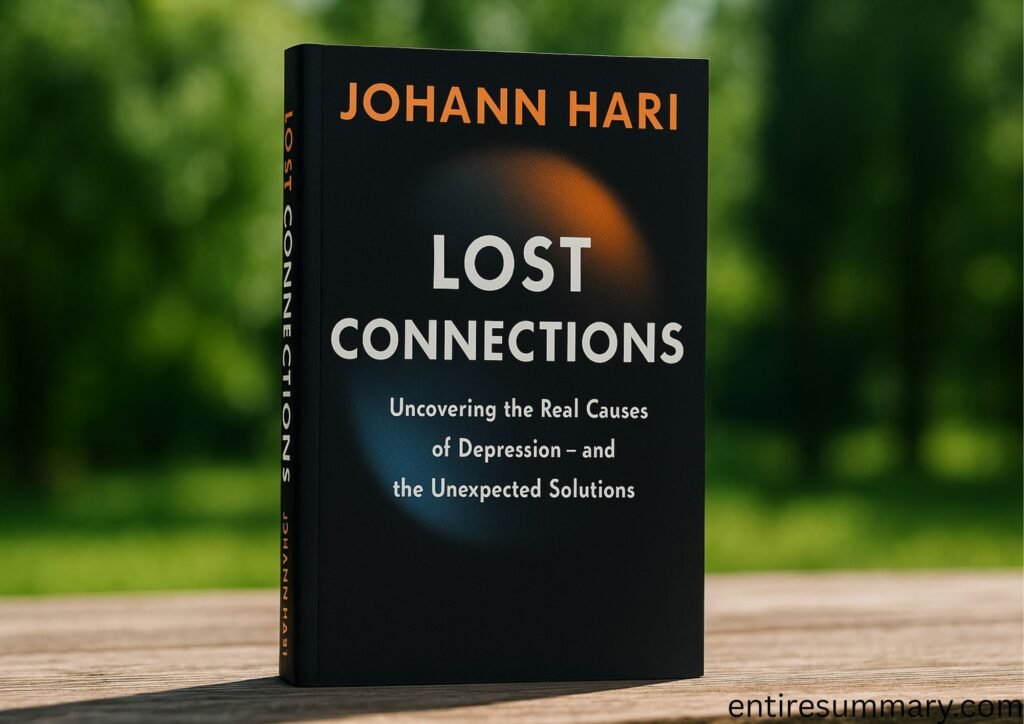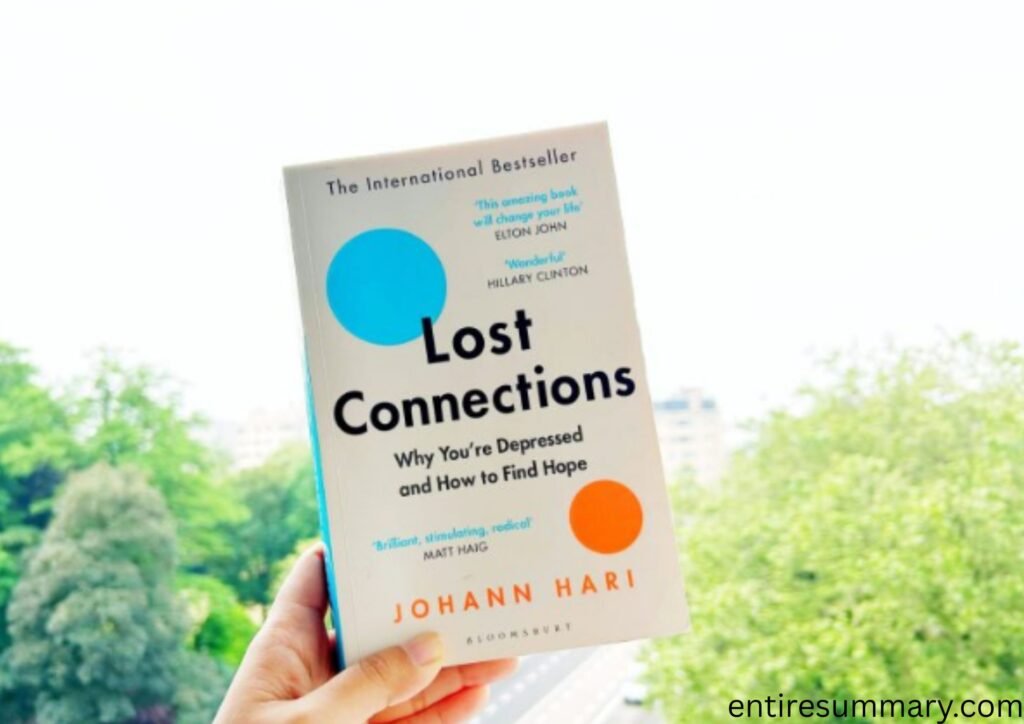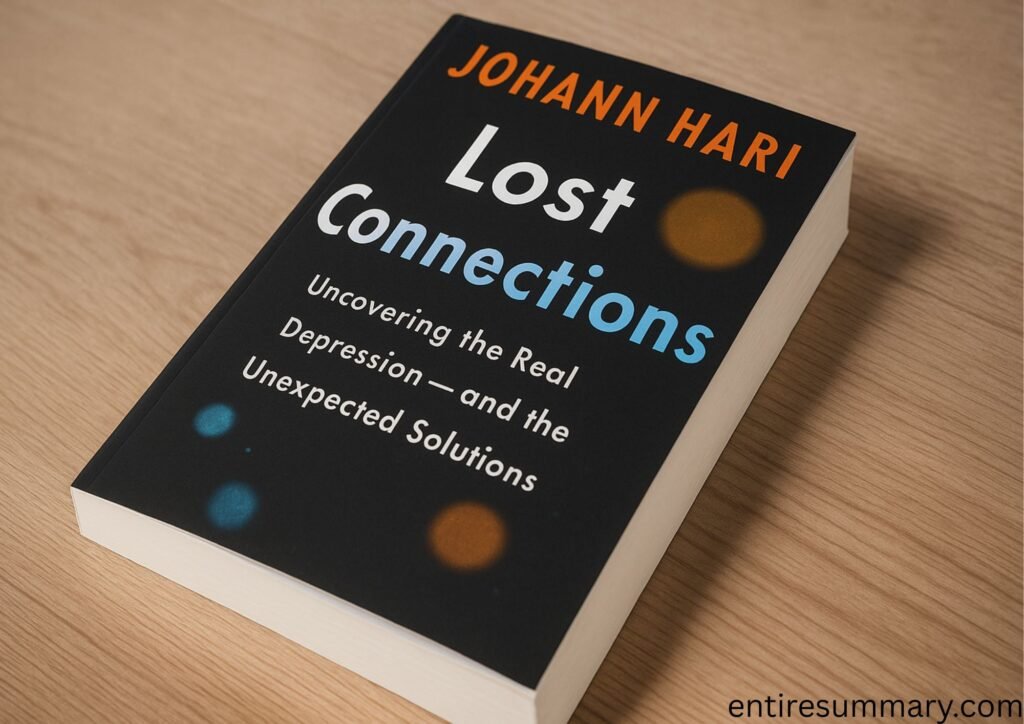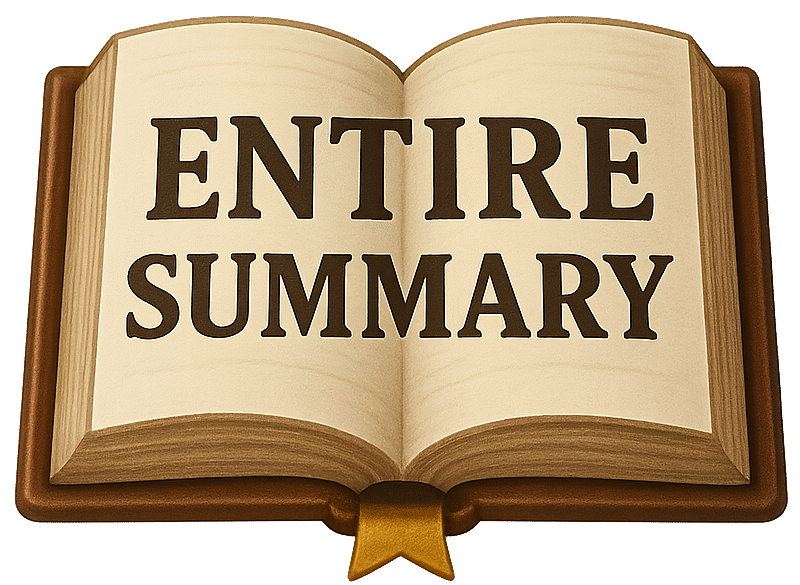Have you ever wondered why, despite all our modern comforts, so many of us feel adrift, anxious, or depressed? Johann Hari’s book, Lost Connections: Uncovering the Real Causes of Depression—and the Unexpected Solutions, dives deep into this very question. Lost Connections is a potent blend of investigative reporting and personal reflection, offering a fresh perspective that questions our usual understanding of depression and anxiety. This isn’t a typical self-help book; instead, it’s a journey into the real-world factors that contribute to our widespread mental health crisis, and a hopeful exploration of what truly helps.
In the first half of the book, Hari sets the stage by sharing his own long and frustrating battle with depression, a fight that began in his teens and was initially treated with antidepressants. He describes his own experience as feeling “like a bird in a beautiful cage,” comfortable but without the freedom to fly. He was told a simple story: his depression was caused by a chemical imbalance in his brain—a lack of serotonin. This “serotonin theory” is what most of us have been taught, and it’s the foundation of modern psychiatric treatment. But Hari, a keen observer and a journalist by trade, begins to question this narrative. He embarks on a global journey, speaking to leading scientists, doctors, and people who have found their way out of the fog of depression.
What he uncovers is eye-opening. Hari reveals that the chemical imbalance theory is not as scientifically solid as we’ve been led to believe. He speaks with researchers who tell him that studies have repeatedly failed to prove a direct link between low serotonin levels and depression. This isn’t an attack on medication, which he acknowledges helps many people, but a call to broaden our understanding. The book’s central argument begins to take shape: our depression and anxiety aren’t just a malfunction of our individual brains. Instead, they are often a symptom of our modern way of life—a symptom of disconnection.
Hari identifies nine key disconnections, and he dedicates a significant part of the book to exploring them one by one. He starts with the most personal: the disconnection from meaningful work. He interviews people who found their depression lifting when they left soulless jobs for work that offered purpose and control. Next, he explores the disconnection from other people, highlighting the critical role of community and social bonds. Hari shares stories of communities that have successfully tackled loneliness by creating shared spaces and fostering genuine connection, showing that feeling like you belong is a powerful antidote to despair.
The second half of Lost Connections delves deeper
Also read: /the-boy-who-was-raised-as-a-dog/
The second half of Lost Connections delves deeper into these disconnections, moving beyond the personal and into the societal. Hari talks about the disconnection from meaningful values, arguing that our culture’s obsessive focus on consumerism and material possessions leaves us feeling empty. He points to research showing that once our basic needs are met, more money and possessions don’t make us happier; in fact, they often do the opposite. He then explores the disconnection from a hopeful and secure future, noting how economic instability and a lack of job security contribute to widespread anxiety. Hari also points to the disconnection from nature, citing studies that show how spending time in green spaces can significantly improve mental well-being.

One of the most powerful sections of the book is when Hari discusses the disconnection from childhood trauma. He explains that depression and anxiety are often a rational and understandable response to painful early life experiences, not a flaw in our brains. He highlights innovative programs that address trauma directly, helping people to process their pain rather than simply medicating its symptoms. Hari also introduces us to the disconnection from status and respect, a factor that profoundly affects people’s sense of self-worth.
The climax of the book is not a single event but a cumulative realization. Hari concludes that the solutions to our mental health crisis are not found in a pill bottle alone. Instead, they are found in reconnecting with the things we’ve lost. He documents how a community in Berlin helped people overcome anxiety by collectively fighting to save a park, giving them a shared purpose. He shares the story of a doctor who “prescribed” social connections to his patients instead of just medication, with remarkable results. These examples aren’t just feel-good stories; they’re evidence-based approaches to mental health that address the root causes of our distress.
For Hari, the book’s conclusion is deeply personal. He finds his own way to a better place not by increasing his dosage of medication but by addressing the disconnections in his own life. He moves to a different city, changes his work, and invests in his relationships. He doesn’t dismiss medication entirely but reframes it as a potential tool to help people get to a place where they can begin to rebuild their lives, to “get the It’s like getting the fuel you need to start moving forward, as he explains it. The book ends on a note of profound hope, arguing that depression isn’t a personal failing but a signal that we need to change our lives, our communities, and our society. It’s a call to action, urging us to look beyond quick fixes and build a world where genuine human connection can thrive.
Key Takeaways from ‘Lost Connections’
- Depression isn’t always a personal chemical problem; it’s often a rational response to disconnection from work, people, values, and nature.
- The “serotonin theory” of depression is not as scientifically supported as many people believe, and medication is not the only or even the primary solution for many.
- Reconnecting with meaningful work, building community, finding purpose, and spending time in nature are powerful antidotes to anxiety and depression.
- Social and economic factors, such as wealth inequality, job insecurity, and childhood trauma, are major contributors to our mental health crisis.
- Addressing depression requires a societal shift, not just individual therapy. It’s about rebuilding a world where people feel a sense of belonging and purpose.

FAQs
What’s the main argument of ‘Lost Connections’?
Hari’s central thesis is that depression and anxiety are not simply the result of a chemical imbalance but are largely caused by disconnections in our lives—from meaningful work, social connections, purposeful values, and the natural world. He argues that addressing these root causes is essential for lasting recovery.
Does the book say people should stop taking antidepressants?
No, Hari is very clear that he is not telling people to stop their medication. He states that antidepressants can be a helpful tool for many, especially in the short term, but he challenges the idea that they are the only solution. He advocates for a more holistic approach that combines medication with addressing the underlying social and psychological factors.
How does the author’s personal journey relate to the book’s themes?
Hari’s own struggles with depression and his dissatisfaction with standard treatments were the driving force behind his research. He uses his own experiences to frame the narrative, making his discoveries relatable and grounding the academic research in real-world emotion. His story provides a personal and empathetic lens through which to view the larger issues.
What are some practical things I can do based on the book’s ideas?
Lost Connections suggests several things, from a personal to a community level. On a personal level, you can seek out work that feels more purposeful, find a community to join, or spend more time in nature. On a community level, you can advocate for better social safety nets, create shared spaces in your neighborhood, or start a local group focused on a shared interest.
How does this book differ from other books about depression?
Many books on depression focus on individual cognitive-behavioral techniques or pharmaceutical solutions. Lost Connections shifts the focus from the individual to the social and environmental context. It is an investigative work, not a self-help guide in the traditional sense, and it challenges the very foundation of how we think about mental health.
What does the book say about childhood trauma and depression?
Hari devotes an entire chapter to the link between childhood trauma and depression, explaining that many people’s struggles are a rational and understandable response to painful experiences. He highlights that simply medicating these feelings doesn’t solve the underlying issue and that approaches that help people process their trauma are often more effective.
Who is this book for?
Lost Connections is for anyone who has struggled with depression or anxiety, as well as for their friends and family. It’s also an important read for mental health professionals, policymakers, and anyone interested in understanding the social and environmental factors that contribute to our widespread mental health crisis. It offers a new, more compassionate, and more hopeful way of seeing the problem.
Final Thoughts
Lost Connections is a truly transformative read. It’s a compassionate and well-researched argument that invites us to look beyond a simplistic understanding of mental health. This book is a 10/10 for its profound insight and for providing a sense of hope that is both evidence-based and deeply human. If you liked this book, you might also enjoy Tribe: On Homecoming and Belonging by Sebastian Junger, which explores similar themes of social connection and community.


